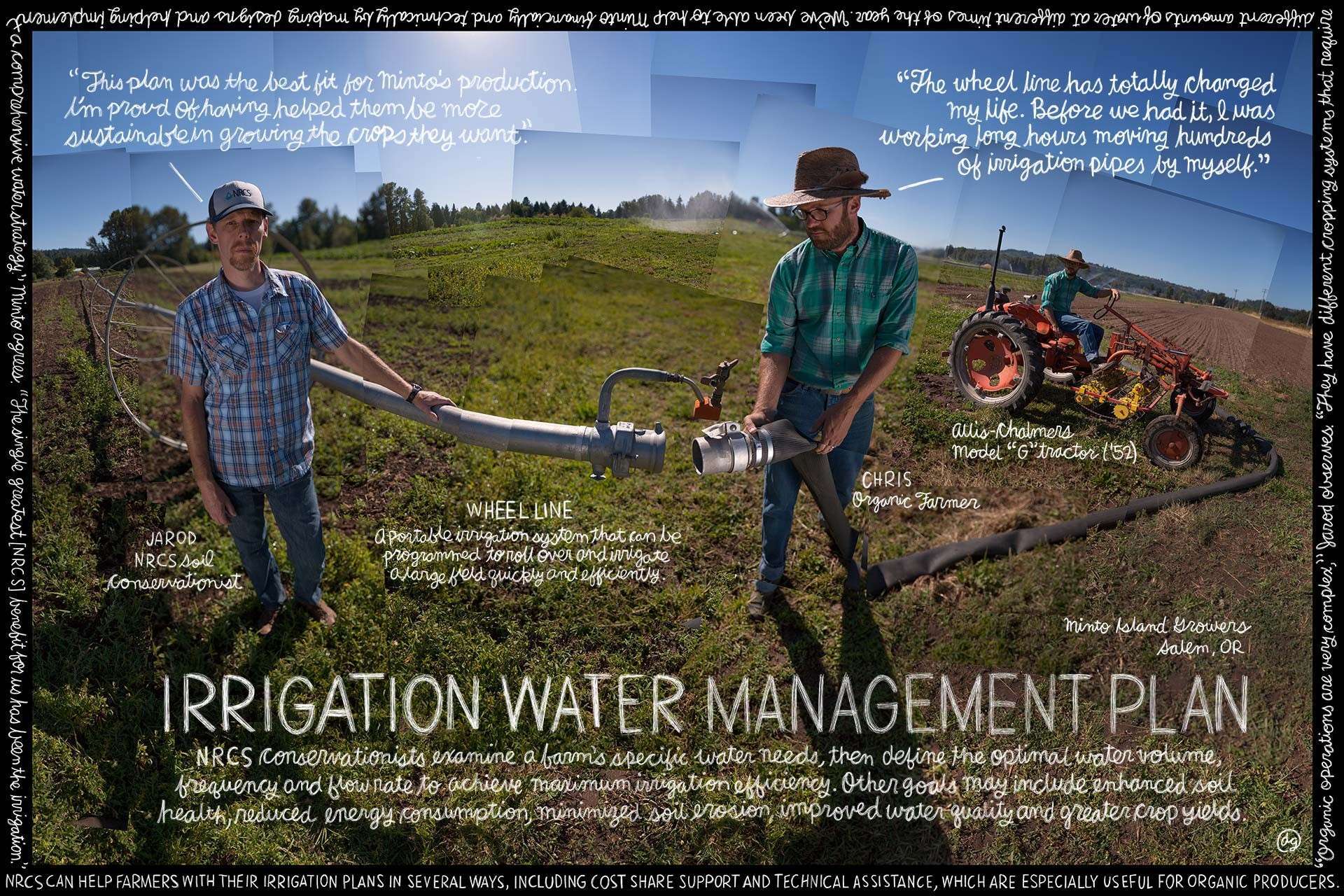NRCS can help organic farmers with irrigation water management strategies tailored to their farm’s specific needs. Conservation practices can also protect water quality in the surrounding ecosystem.
Water quantity. Irrigation management plans combine conservation principles with efficiency, balancing the farm’s water needs with those of nature. Tools like drip irrigation, which provides water precisely where and when it’s needed, can achieve greater precision with flow meters and soil moisture sensors.

Information artworks by Douglas Gayeton
Farmers can also conserve water by increasing their soil’s water holding capacity and using conservation tillage to keep the ground covered, reducing water loss through transpiration and evaporation.
A one percent increase in soil organic matter can help the soil retain an additional 20,000 gallons of water per acre that can be banked and become available when plants need it most. NRCS agricultural engineers can use satellite-tracking tools to conduct precise topographic surveys, then design complete site-specific irrigation systems, from wells to pumps to pipes to hookups out in the field, saving water by improving irrigation efficiency. In combinations, these practices add up and make a huge difference.

Water quality. Well-managed organic systems rely on slow-release forms of nutrients, which reduce the risk of nutrient runoff and leaching. These practices help maintain water quality, while enhanced soil structure, water infiltration, and better nutrient retention also protect water quality.
NRCS-developed nutrient management plans, cover crops, and buffers keep soil and nutrients in place and filter runoff water.

“I provide technical assistance on any natural resource concern that’s out there. I do designs for stream bank stabilization and waste storage facilities, but the bulk of my work right now is providing irrigation technical assistance. At Front Field farm, I’ll use the data I collect to lay out an irrigation design that helps determine how much water the crops need and improve water use on their farm.”

WANDA WETLESEN-SHEPHERD
USDA/NRCS
Agricultural Engineer
Athens, GA

